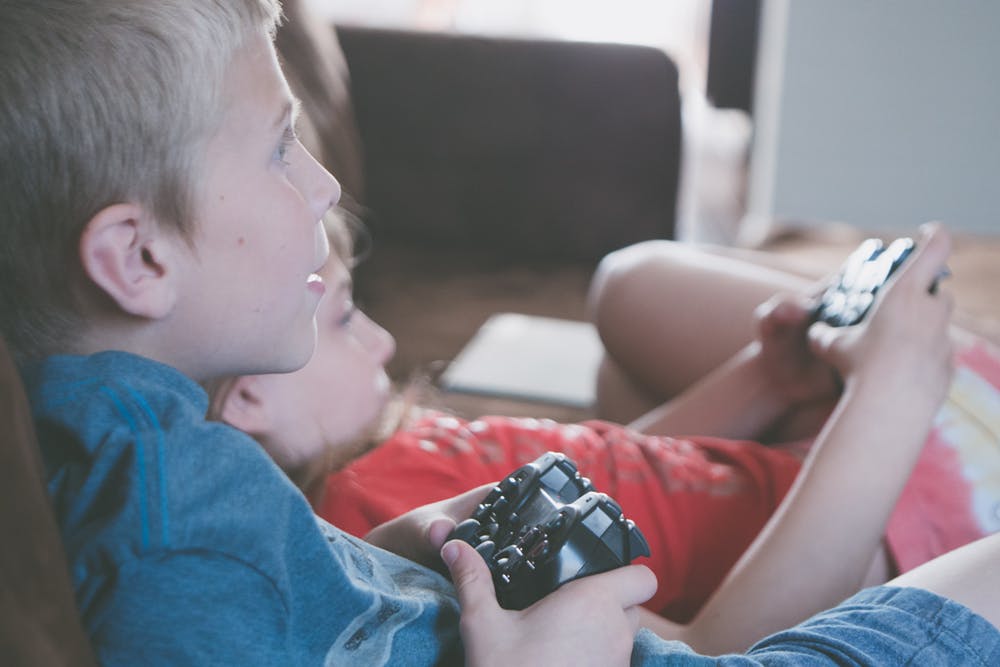
The Bad
We all see our kids screaming at the screen and becoming more defiant after playing video games. This is because the reptilian part of their brain is being activated. This is the part of the brain that activates for survival responses, when perceived danger is sensed. This causes us to get aggressive (Dunkley, 2016). This means when kids are playing Fortnite, their pretend combat play causes their brain to think it is real! And gives them a boost of energy.
The other downside of gaming is that with all this energy, there is less time spent sleeping. This can lead to other problems as well. Studies have found that the more time spent playing video games, the more likely kids would have behavior problems and have poor social skills (Mozes, 2013).
The Good
Even though there are a lot of studies showing video games can create sleep loss, meltdowns and poor social skills, there is not a lot of evidence that video games promote antisocial or violent tendencies. Since video games have been around, violent crimes in the United States has dropped. In 1991, there were 25,000 murders while in 2016 there were 17,250 (Lazurus, 2017).
A Spanish study found that children who played video games had enhancements in their skills, particularly reaction time and fine motor coordination. However, this is if they played for a max of 8 hours per week. The study found that more than 8 hours, the children had behavioral problems (Mazes, 2013).
The Appeal
We are always asked, “why do they like these games so much?” The reasons revolve pretty much around social needs. Video games provide consistent positive reinforcement: receiving points and awards for all of the player’s efforts. This is something we do not always get in our daily lives. Games are also a social opportunity for children to connect with their friends out of school, and to have a common topic to talk about.
The social world is very abstract. It is hard to figure out what we are supposed to do in different situations. Video games provide a structure that the social world does not have. Many children love that video games are linear, with a clear path to gain achievement. This becomes a relaxing escape from the real world.
The Balance
All of the studies suggest that 8 hours or less is a healthy amount of gaming for a child (Mozes, 2013). This would be the ideal time to enforce. Create rules on times and days video games will be allowed. Many people find limiting them to the weekends, after homework, and ending one hour before bedtime as the most effective rules.
Visual timers can help set limits for gaming as well. With the visual, there can be a clear understanding on how much time is left, and less arguing! Alternative activities to video games may need to be provided, such as card games, crafts, and sports. With a limit of 8 hours or less, kids can have have the benefits and release of video games, without the behavioral problems.
References:
Mozes, A. (2013). How much video gaming is too much for kids? Retrieved January 25, 2019,
from https://www.webmd.com/default.htm
Dunkley, V. L., M.D. (2016, September 25). This is your child’s brain on video games. Retrieved
January 25, 2019, from https://www.psychologytoday.com/
Lazarus, D. (2017, November 10). Are video games bad for your kids? Not so much experts say.
Los Angeles Times. Retrieved January 25, 2019.
Photo from: Pexels
